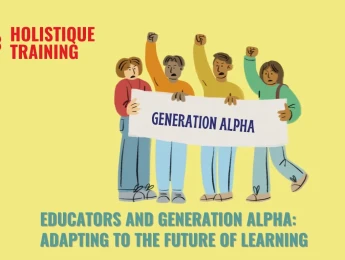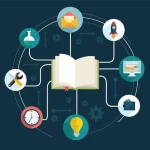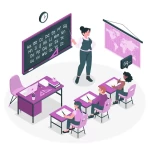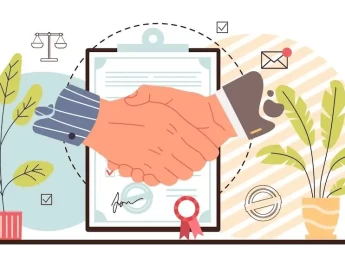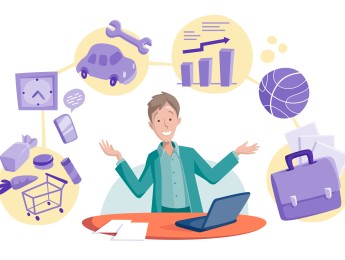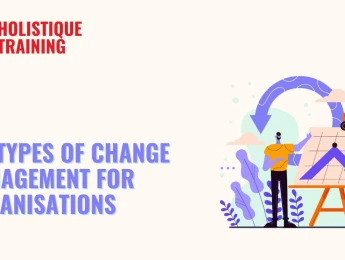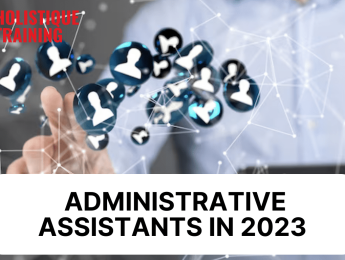- Table of Contents
- Introduction
- Understanding Generation Alpha
- Defining Characteristics of Generation Alpha
- The Strengths of Generation Alpha
- 1. Tech-Savviness
- 2. Adaptability
- 3. Creativity and Innovation
- 4. Global Awareness
- 5. Collaborative Spirit
- 6. Early Engagement with Self-Directed Learning
- The Challenges Educators Face with Generation Alpha
- Keeping Attention in a Distracted World
- Balancing Technology and Human Interaction
- Encouraging Depth of Learning
- Differentiated Learning Needs
- What Are the Learning Habits of Generation Alpha?
- 1. Preference for Interactive and Engaging Learning Experiences
- 2. Visual and Multimedia Learning Preferences
- 3. Shorter Attention Spans and Multitasking Tendencies
- 4. Self-Directed and Independent Learning
- 5. Collaborative and Social Learning
- 6. Immediate Feedback and Gratification
- 7. Hands-On and Experiential Learning
- The Importance of Adapting to Generation Alpha's Learning Habits
- 1. Ensuring Engagement and Motivation
- 2. Enhancing Retention and Understanding
- 3. Preparing for the Future Workplace
- Ways Educators Can Adapt to These Learning Habits
- Incorporating Technology Thoughtfully
- Using Short, Interactive Lessons
- Promoting Creativity and Critical Thinking
- Personalised Learning Pathways
- Fostering a Growth Mindset
- Conclusion
Introduction
The learners in the classroom shape the future of education. Generation Alpha, born from 2010 onward, represents a dynamic and technology-driven cohort unlike any that have come before. These young individuals are the first to grow up entirely in a digital world, and this environment deeply influences their expectations, learning styles, and interactions. Educators tasked with shaping the minds of tomorrow are facing both exciting opportunities and new challenges as they adapt to the needs of Generation Alpha.
This blog will explore Generation Alpha's defining characteristics, delve into their unique strengths, discuss the challenges educators face, examine their learning habits, and highlight the importance of adapting teaching strategies to engage these students effectively. By understanding how Generation Alpha learns and interacts with the world, educators can better prepare to create enriching and future-ready learning environments.
Understanding Generation Alpha
Generation Alpha refers to those born from 2010 onward, a cohort that includes the children of Millennials and younger Gen Z parents. By the time the youngest of them enters adulthood, the world will be more interconnected, more technologically advanced, and more digitally immersive than ever before. Understanding who Generation Alpha is requires recognising the unprecedented context in which they are growing up.
Defining Characteristics of Generation Alpha
Digital Natives
Generation Alpha has never known a world without smartphones, tablets, or the internet. Technology is as intrinsic to their lives as the air they breathe, and they expect it to be part of everything they do. From entertainment to education, technology is their gateway to the world, and they are adept at navigating digital platforms from an early age.
Research shows that kids between the ages of 8 and 12 typically spend around 4 hours and 44 minutes using screens daily, while teenagers aged 13 to 18 average 7 hours and 22 minutes of screen time. This is about 3 hours more than millennials, who average 205 minutes daily, and 4 to 5 hours more than Gen X and Boomers, who average 169 and 136 minutes, respectively. Despite their heavy screen use, nearly 46 percent of Generation Alpha still express a desire to pursue careers that let them work outdoors.
Hyperconnected
Social media, online gaming, and digital communication tools are integral to how Generation Alpha connects with others. Unlike previous generations, their social interactions are just as likely to happen through a screen as they are face-to-face. This interconnectedness means that they are more globally aware and culturally diverse than their predecessors.
Visually-Oriented Learners
The prevalence of video-based content, such as YouTube, TikTok, and educational apps, means Generation Alpha is highly attuned to visual information. They are drawn to engaging, dynamic media and are often more comfortable processing information through visuals than through traditional text-based formats.
Self-Learners
With unlimited access to information through the internet, Generation Alpha is more inclined toward independent learning. They often seek out answers to their questions on their own, utilising search engines, video tutorials, and apps to supplement their knowledge.
Shorter Attention Spans
The fast-paced nature of digital media has contributed to Generation Alpha having shorter attention spans. They are accustomed to quickly shifting between tasks, and their ability to focus can be fragmented. This requires new strategies for keeping them engaged in learning environments.
Feature | Generation Alpha | Generation Z
|
Birth Years
| Born from 2010 to mid-2020s | Born from mid-1990s to 2009 |
Technology Use | Digital natives; first to grow up online | Grew up with technology; early adopters |
Learning Preferences | Prefer interactive, visual, and hands-on learning | Favour online resources and social media |
Social Concerns | Focused on sustainability and environmental issues | Advocates for social justice and equality |
Communication Style | Use apps and videos to express themselves | Lean towards text and social media communication |
Career Aspirations | Aim for impactful careers in various fields | Seek job security and entrepreneurial ventures |
Table: Comparison of Generation Alpha and Gen Z
The Strengths of Generation Alpha
While Generation Alpha presents challenges for educators, they also bring an array of strengths to the classroom. These strengths highlight the immense potential of this generation and offer opportunities for educators to tap into their unique abilities, guiding them toward success in an increasingly complex and technological world. Understanding and leveraging these strengths can transform the learning environment, making it more dynamic and future-focused.
1. Tech-Savviness
Generation Alpha is the first cohort to grow up in a world where technology is deeply embedded in every aspect of daily life. From the moment they are born, they are surrounded by digital devices—smartphones, tablets, smart TVs, and even voice-activated assistants like Alexa and Siri. By the time they reach school age, many are already familiar with using devices to access information, play games, and interact with educational tools. This deep-rooted comfort with technology gives Generation Alpha a significant edge over previous generations when it comes to digital literacy.
Their ability to navigate digital tools from an early age means that they are not intimidated by new technologies. Whether it’s learning to code in elementary school or using digital platforms for collaborative projects, Generation Alpha is ready and willing to embrace technological innovations in the classroom. This tech-savviness extends beyond basic usage—they are often capable of troubleshooting issues, learning new software independently, and exploring creative ways to solve problems using technology.
For educators, this tech fluency means they can introduce more advanced, technology-driven learning experiences into the classroom. Whether through augmented reality (AR) learning apps, interactive digital textbooks, or gamified learning platforms, the possibilities for enhancing their learning journey are endless. It also encourages educators to integrate technology into teaching methods, ensuring that students are preparing for a world where digital proficiency is a necessity in nearly every career path.
2. Adaptability
The world Generation Alpha inhabits is fast-paced and constantly evolving, particularly in the realms of technology, culture, and media. As a result, these young learners have developed a remarkable ability to adapt to new circumstances, tools, and environments. Change is not something Generation Alpha fears—instead, they are conditioned to embrace it, constantly absorbing and responding to new stimuli.
This adaptability is not just limited to technology; it extends to how they learn, interact socially, and process information. Unlike previous generations that may have experienced periods of transition between traditional and digital forms of learning, Generation Alpha is flexible and capable of toggling between different methods effortlessly. They might switch from learning through a digital game to a group discussion and then to an independent research task—all with ease. Their openness to change enables educators to introduce varied teaching methods, which can make lessons more engaging and dynamic. This adaptability also primes Generation Alpha for success in a future where the only constant is change, particularly in workplaces that will require flexibility in both skills and mindset.
Moreover, this generation's adaptability means they are quick learners when it comes to new systems, programs, or concepts. For example, suppose an educator introduces a new learning management system (LMS). In that case, students in Generation Alpha can usually get the hang of it without much difficulty, making transitions smoother and allowing for more experimentation in the classroom.
3. Creativity and Innovation
Creativity has always been a valuable trait, but for Generation Alpha, creativity is supercharged by the vast digital resources at their disposal. With platforms like YouTube, TikTok, Instagram, and Minecraft, Generation Alpha has endless opportunities to create and share their ideas. They don’t just consume content; they are active participants in creating it. Whether it’s designing a virtual world, producing a how-to video, or coding their own game, this generation engages in creative pursuits in ways that weren’t possible for earlier cohorts.
This presents an incredible opportunity for educators to tap into students' natural inclination for innovation. Teachers can foster environments where creativity is encouraged and integral to the learning process. Project-based learning, design-thinking workshops, and collaborative group assignments allow students to exercise their creativity while working toward educational goals. In STEM subjects, Generation Alpha can excel in areas such as robotics, coding, and engineering, where their natural creativity allows them to think outside the box and develop original solutions to complex problems.
This creativity also leads to innovation in problem-solving. Given the right tools, Generation Alpha students can approach challenges in novel ways. For example, rather than following a prescribed formula for solving a maths problem, they might use digital tools or visual models to arrive at a solution that suits their way of thinking. This innovative mindset will serve them well in the future as they tackle real-world problems that require creative and unconventional approaches.
4. Global Awareness
Generation Alpha is growing up in a world that is more globally connected than ever before. Through the internet and social media, they are exposed to diverse cultures, languages, and global issues from a young age. This exposure fosters a level of global awareness and empathy that is unprecedented in previous generations. They are not only aware of what's happening in their own communities but also of global movements such as climate change, social justice, and technological advancements in other parts of the world. In fact, more than 30% of Generation Alpha indicate a strong wish to contribute positively to society by focusing their future careers on assisting people or protecting the planet, according toRazor Fish.
This global perspective is a strength that educators can leverage in several ways. Discussions about world events, multiculturalism, and global citizenship resonate more with Generation Alpha because they are already attuned to these concepts. Incorporating global topics into the curriculum—whether through world history lessons, environmental science projects, or foreign language studies—can help deepen their understanding and encourage them to think critically about their place in the world. It also opens the door for educators to cultivate empathy and social responsibility among students, guiding them to become compassionate, globally-minded individuals.
Generation Alpha's access to global information also means that They are more likely to take action. Whether advocating for environmental causes, participating in social movements, or simply learning about different cultures, their global awareness translates into a broader, more inclusive worldview. Educators who can tie these global connections into everyday lessons will help students develop a more comprehensive understanding of the world around them.
5. Collaborative Spirit
Collaboration comes naturally to Generation Alpha, in large part because of their digital upbringing. Online gaming, social media platforms, and collaborative tools have encouraged them to work together, even when physically apart. Whether teaming up in virtual worlds or sharing ideas on digital platforms, Generation Alpha knows how to collaborate across geographical, cultural, and technological boundaries.
This generation’s collaborative nature is an asset in educational settings, as they are often eager to work in teams to solve problems, complete projects, and learn from one another. Educators can utilise this collaborative spirit by designing lessons emphasising teamwork and peer learning. Group projects, peer feedback sessions, and collaborative digital tools can help students build on each other’s strengths and develop important interpersonal skills.
Generation Alpha’s affinity for collaboration also extends beyond the classroom. They are used to working with diverse groups of people in online spaces, which mirrors the increasingly globalised and interconnected workforce they will eventually enter. Encouraging collaboration in education prepares them for future workplace environments and helps them develop a range of soft skills, such as communication, teamwork, and leadership, which will be invaluable in their future careers.
6. Early Engagement with Self-Directed Learning
One of Generation Alpha's most unique characteristics is their tendency to engage in self-directed learning. From an early age, they have access to an abundance of online resources, ranging from educational apps to YouTube tutorials. This enables them to seek out information independently, often pursuing topics that spark their curiosity outside of the traditional curriculum.
This strength presents a significant opportunity for educators to cultivate a classroom environment where self-directed learning is encouraged and structured to complement traditional teaching. Teachers can foster a sense of ownership and motivation in Generation Alpha by allowing students to explore their interests through independent projects, personalised learning pathways, or inquiry-based learning. When students are allowed to take control of their learning, they become more engaged, inquisitive, and confident in acquiring new knowledge.
Educators who embrace this self-directed learning tendency can introduce more student-led initiatives, such as passion projects or exploratory assignments, where students can dive deep into subjects they care about. By aligning lessons with Generation Alpha’s natural curiosity and self-motivation, teachers can create more meaningful and personalised learning experiences.
In short, Generation Alpha’s strengths—ranging from their tech-savviness and adaptability to their creativity, global awareness, collaborative nature, and self-directed learning tendencies—make them an exciting generation for educators to teach. These strengths, when recognised and nurtured, offer tremendous opportunities for creating engaging, innovative, and future-ready learning environments. Educators who adapt their methods to leverage these strengths will foster a love for learning and help shape a generation that is well-prepared for the challenges and opportunities of the 21st century.
The Challenges Educators Face with Generation Alpha
While Generation Alpha brings strengths, educators must also navigate several unique challenges when teaching this generation. These challenges require a shift in how education is delivered and how student engagement is maintained.
Keeping Attention in a Distracted World
The biggest challenge with Generation Alpha is maintaining their attention. Accustomed to the instant gratification provided by digital content, they may find traditional teaching methods slow or disengaging. Educators need to find ways to capture and hold their interest in a world full of distractions.
Balancing Technology and Human Interaction
While technology is an integral part of Generation Alpha’s lives, too much reliance on digital tools can limit face-to-face interactions and the development of social skills. Educators must balance using technology effectively and promoting meaningful human connections in the classroom.
Encouraging Depth of Learning
The fast-paced, bite-sized nature of digital content can make it difficult for Generation Alpha to engage in deep, sustained learning. Educators face the challenge of encouraging critical thinking, focus, and a deeper understanding of complex subjects when students are used to rapidly consuming information.
Differentiated Learning Needs
The diversity within Generation Alpha, particularly regarding their varying levels of digital proficiency and learning preferences, creates a demand for more personalised approaches to education. Teachers must be equipped to cater to different learning styles and provide support that meets their students' individual needs.
What Are the Learning Habits of Generation Alpha?
Generation Alpha, born from 2010 onward, has unique learning habits shaped by their immersion in digital technology, fast-paced media, and a world where information is instantly accessible. As the first truly digital-native generation, their approach to learning differs significantly from previous generations. Understanding these habits is crucial for educators creating effective, engaging, and relevant educational experiences. Below are some of the key learning habits of Generation Alpha.
1. Preference for Interactive and Engaging Learning Experiences
One of the defining characteristics of Generation Alpha’s learning habits is their preference for interactive and engaging learning experiences. Unlike the passivelearning methods of previous generations, where students would primarily listen to lectures or read from textbooks, Generation Alpha thrives on interactive platforms that allow them to participate actively in the learning process.
They are used to apps, games, and digital content that invite them to make choices, solve problems, and receive immediate feedback. For instance, educational platforms that incorporate gamification elements—such as earning points, badges, or progressing through levels—are highly appealing to this generation. This habit stems from their exposure to video games and interactive apps from an early age, where they are not just passive consumers but active participants.
For educators, this means that lessons need to be designed with interactivity in mind. Digital tools like simulations, educational games, and virtual reality (VR) experiences can transform a traditional lesson into something more engaging for these students. Educators can cater to Generation Alpha’s need for dynamic learning environments by integrating activities that require participation, collaboration, and problem-solving. Lessons that feel interactive help keep their attention and encourage deeper engagement with the material.
2. Visual and Multimedia Learning Preferences
Generation Alpha is highly visual in how it processes information. Growing up with platforms like YouTube, Instagram, and TikTok, it is accustomed to learning through short, visually stimulating content. Images, videos, infographics, and animations are far more effective for capturing and holding its attention than long blocks of text. This generation is drawn to content that is visually rich, colourful, and concise, often preferring visual learning over traditional reading or listening.
For example, many Generation Alpha students learn new skills or gain information through tutorial videos on platforms like YouTube or TikTok. These videos break complex ideas down into quick, digestible segments. They also prefer mobile-friendly content that can be easily accessed on smartphones or tablets.
This learning habit calls for educators to incorporate multimedia into their lessons. Traditional text-heavy methods may not be as effective with Generation Alpha. Instead, incorporating videos, digital presentations, animations, and other visual aids can make learning more accessible and engaging. Furthermore, teachers can encourage students to create their own multimedia content, like video presentations or visual projects, which can enhance their understanding of subjects through creative expression.
3. Shorter Attention Spans and Multitasking Tendencies
As a generation that has grown up with a constant stream of information at their fingertips, Generation Alpha tends to have shorter attention spans. The fast-paced nature of digital media, where information is presented in quick bursts, has conditioned them to expect rapid responses and instant gratification. Studies show that Generation Alpha has become adept at filtering and consuming large amounts of information in short periods, but this has also led to a tendency for shorter attention spans when faced with more traditional, slower-paced educational methods.
Additionally, this generation is skilled at multitasking. They are used to switching between apps, playing games while listening to music, or doing homework while watching videos. This behaviour suggests that they are comfortable engaging with multiple streams of information at once, although this can sometimes come at the cost of deep, focused learning.
For educators, understanding this challenge is key to designing lessons that can maintain their attention. This means breaking down complex information into smaller, bite-sized chunks, using engaging, fast-paced teaching methods, and allowing for regular breaks or shifts in activity to prevent boredom. It’s also important to balance leveraging their multitasking abilities and encouraging moments of focused, uninterrupted learning where students can delve deeper into subjects without distraction.
4. Self-Directed and Independent Learning
Generation Alpha shows a strong tendency towards self-directed and independent learning, largely due to their early exposure to digital platforms where they can access vast amounts of information independently. Whether through educational apps, video tutorials, or online research, they often take initiative in their learning, seeking out information on topics that interest them or solving problems on their own using online resources.
This independence is fueled by the availability of user-friendly tools that allow them to learn at their own pace. Online platforms like Khan Academy, Duolingo, and Google Classroom allow them to explore subjects that intrigue them, without being restricted by traditional classroom schedules. This ability to guide their own learning helps Generation Alpha develop a sense of autonomy and responsibility for their education.
Educators can tap into this self-directed learning habit by offering opportunities for students to explore topics that interest them through inquiry-based learning, passion projects, or personalised learning paths. Giving students the autonomy to choose certain aspects of their learning fosters engagement and helps build critical thinking and problem-solving skills. It allows them to explore their curiosity while developing the ability to self-manage their education.
5. Collaborative and Social Learning
Generation Alpha also values collaboration and social learning despite their ability to learn independently. Growing up in a digitally connected world where they can interact with peers online, they are comfortable working in teams, both in person and virtually. Platforms like Minecraft, Roblox, and social media have taught them how to collaborate, share ideas, and create content together. This inclination towards teamwork extends into the classroom, where they often enjoy working in groups to solve problems or complete projects.
Collaborative tools like Google Docs, Microsoft Teams, and various educational apps make it easy for students to work together in real time, even when they are not physically in the same place. Generation Alpha thrives in environments where they can bounce ideas off each other, co-create projects, and receive instant feedback from both peers and educators.
Educators can support this social learning habit by incorporating more group-based activities, peer feedback sessions, and collaborative projects. Group work not only plays to Generation Alpha’s strengths but also helps them develop important social skills such as communication, teamwork, and conflict resolution, which will be invaluable in their future professional lives.
6. Immediate Feedback and Gratification
Generation Alpha is used to receiving immediate feedback in many aspects of their lives, from social media likes and comments to real-time game updates. This expectation carries over into their learning habits, where they benefit from instant feedback on their progress. Whether it's through digital quizzes that provide immediate results or educational games that offer rewards and badges for completed tasks, this generation responds well to systems that let them know how they are doing in real time.
The demand for immediate feedback is challenging for traditional education models that rely on longer assessment periods. To engage Generation Alpha effectively, educators can use tools that provide instant feedback, such as online quizzes, interactive assessments, or adaptive learning software. This allows students to track their own progress and feel a sense of accomplishment as they move through lessons. Immediate feedback helps sustain their motivation and gives them a clearer sense of what they need to improve in the moment, rather than waiting days or weeks for results.
7. Hands-On and Experiential Learning
Generation Alpha thrives on hands-on, experiential learning. They are not content to sit back and absorb information passively; instead, they want to engage with learning through doing. Activities that allow them to experiment, create, and apply what they’ve learned are particularly effective with this generation. Whether through science experiments, art projects, coding workshops, or building models, Generation Alpha prefers learning that involves tangible experiences where they can see the results of their efforts in real time.
This focus on experiential learning aligns with the growing trend toward project-based learning (PBL), which encourages students to work on long-term projects that involve solving real-world problems. PBL helps Generation Alpha connect what they are learning in the classroom and how it applies to the world outside, enhancing their engagement and making learning more meaningful.
Educators can foster this hands-on learning habit by incorporating more project-based assignments, experiments, and practical applications into their teaching methods. Maker spaces, robotics labs, and other hands-on tools can also provide Generation Alpha with the tactile learning experiences they crave.
Understanding Generation Alpha's learning habits is crucial for educators seeking to engage this tech-savvy, adaptable, and visually oriented generation. Their preference for interactive, multimedia, and self-directed learning, combined with their need for immediate feedback and collaboration, requires a shift in how education is delivered. By adapting teaching methods to cater to these habits, educators can create dynamic, engaging, and effective learning environments that prepare Generation Alpha for the future.
The Importance of Adapting to Generation Alpha's Learning Habits
As the education system evolves, adapting to Generation Alpha’s learning habits will be essential for maintaining student engagement and ensuring educational success. Failure to adapt risks creating a disconnect between educators and students, leading to disengagement, underperformance, and a lack of readiness for the future.
1. Ensuring Engagement and Motivation
Generation Alpha's learning habits, such as their need for interactive content and quick feedback, reflect the pace of the world they are growing up in. Educators who fail to adjust their teaching methods risk disengagement and lack of motivation among students. In a classroom where content isn't delivered in a way that resonates with their tech-savvy minds, students can easily become bored, distracted, or frustrated. By embracing the tools and techniques that appeal to their learning styles, such as gamified learning, digital collaboration, and multimedia content, educators can ensure that students remain actively engaged, motivated, and excited about learning. Engaged students are not only more likely to absorb the material but also to apply what they’ve learned in creative and innovative ways.
2. Enhancing Retention and Understanding
The way Generation Alpha consumes and processes information has evolved, with shorter attention spans and a preference for quick, bite-sized pieces of content. Adapting teaching methods to include these preferences enhances not only their engagement but also their ability to retain and understand complex information. For instance, breaking lessons into smaller, manageable segments and incorporating visuals, animations, and real-world examples helps this generation better grasp difficult concepts. Moreover, allowing them to learn by doing hands-on projects and collaborative activities deepens their understanding and allows them to internalise knowledge more effectively.
3. Preparing for the Future Workplace
Another key reason for adapting to Generation Alpha’s learning habits is to prepare them for the future, where technology, creativity, and critical thinking will be paramount. The workplace they will enter will demand flexibility,innovation, and the ability to learn continuously in an ever-changing environment. By creating learning environments that encourage independent thinking, problem-solving, and the use of digital tools, educators help prepare these students for a future in which they must navigate complex challenges, adapt to new technologies, and collaborate across diverse platforms and teams. Ensuring that education is aligned with their habits and preferences ultimately equips Generation Alpha with the skills they need to succeed in a globalised, technology-driven world.
Ways Educators Can Adapt to These Learning Habits
Incorporating Technology Thoughtfully
To engage Generation Alpha, educators must embrace technology but do so thoughtfully. Tools like virtual classrooms, educational apps, and gamification can make learning more interactive. However, technology should not replace human interaction but rather enhance it, allowing for a blended learning environment where digital tools complement traditional teaching methods.
Using Short, Interactive Lessons
Given their shorter attention spans, educators can benefit from breaking lessons into smaller, more manageable chunks. Short, interactive activities, group discussions, and project-based learning can help maintain engagement without overwhelming students. Additionally, incorporating frequent feedback loops provides the instant gratification this generation craves.
Promoting Creativity and Critical Thinking
Generation Alpha thrives in environments that allow for creative exploration. Educators can introduce more opportunities for students to engage in projects that require them to think outside the box, collaborate with peers, and use digital tools to solve real-world problems.
Personalised Learning Pathways
Educators should also consider creating more personalised learning experiences for their students. Technology can play a significant role in this, with adaptive learning platforms that cater to each student's strengths and weaknesses. This allows students to learn at their own pace and focus on areas where they need improvement.
Fostering a Growth Mindset
Encouraging a growth mindset is crucial for Generation Alpha, who are constantly faced with new challenges and rapid technological changes. Educators should emphasise the importance of perseverance, adaptability, and continuous learning, helping students develop resilience in their academic and personal lives.
Conclusion
Generation Alpha is a generation of learners shaped by digital technology, interconnectedness, and an evolving world. Their strengths, such as tech-savviness and creativity, present exciting opportunities for educators to innovate in the classroom. However, their learning habits and unique challenges also require a thoughtful adaptation of teaching strategies. By understanding their preferences for interactive, personalised, and self-directed learning, educators can create environments that not only engage these students but also prepare them for a future where lifelong learning is essential. As the educational landscape continues to shift, embracing the needs of Generation Alpha will ensure that educators remain at the forefront of fostering success in the leaders of tomorrow.
To effectively address these challenges and create engaging learning environments, our"Classroom Management" course provides educators with the tools and strategies needed to adapt to Generation Alpha’s unique needs. This course offers practical guidance on balancing technology use, managing attention spans, and fostering collaboration in the digital age. Equip yourself with the skills to lead a dynamic and well-organised classroom that nurtures the potential of every student.


